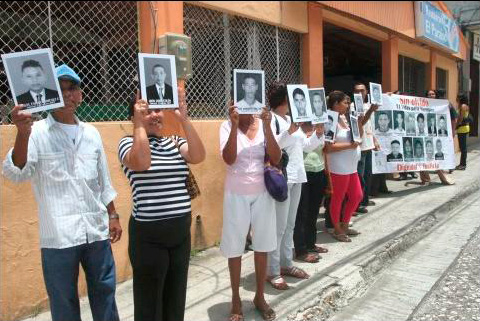by Maurizio Sacchi
At an event in Bogota’s main square, Colombia’s Defence Minister Iván Velásquez apologised to the families of the victims of the so-called ‘false positives’. An investigation found that between 2002 and 2008, 6,402 civilians were killed by the army and passed off as rebels. The victims were young people, mostly from the capital’s slums, who were lured with promises of work in rural Colombia, where they were executed by soldiers who dressed them in guerrilla uniforms or gave them weapons. The aim was to give the impression that the military was gaining the upper hand against the Revolutionary Armed Forces of Colombia (FARC) guerrillas. Soldiers testified to being pressured by their superiors to increase their ‘kill rate’ and how they would be rewarded with promotions or days off.
“We are here to apologise to the victims, to Colombian society and to the international community,” Velásquez said. President Gustavo Petro also asked for forgiveness for what he likened to ‘genocide’. At the Plaza de Bolivar event, attended by the mothers of some of the victims, the defence minister called the killings ‘shameful’. The commander of the Colombian army, Luis Ospina, said that “painful acts were committed by members of the national army that should never have happened”.
Meanwhile, the peace process has begun with the last remaining armed faction, the Estado Mayor Central of FARC dissidents. The first round of negotiations with the CME will take place in the northeastern town of Tibú, near the Venezuelan border. The ceasefire took effect on 16 October. The EMC-FARC had become increasingly powerful after the 2016 peace agreement between the Colombian government and the guerrilla group. They handed over their weapons to 7,000 of their members. The EMC then increased its presence in areas previously occupied by the FARC. The government said it believed they were involved in cocaine trafficking, illegal mining and attacks on Colombian troops. An earlier ceasefire with the EMC-FARC, which was to last until 31 December 2022, was suspended in May after the fighters killed four indigenous boys aged between 14 and 16 who had been forcibly recruited as fighters for the group but then fled.
The UN also recognises Gustavo Petro’s peace policy. Presenting the latest report of the Secretary-General, Carlos Ruiz Massieu, Special Representative and Head of the United Nations Verification Mission in Colombia, said that the commitment to comprehensive rural reform, as set out in the Final Agreement to End the Conflict, and new initiatives for dialogue for peace were the highlights of President Gustavo Petro’s first year in office.
Massieu also highlighted the important policy measures taken in a year marked by significant budgetary allocations for rural reform and its prioritisation in the National Development Plan, as well as increased dialogue with peasant and landowner organisations. The Special Representative and Head of the United Nations Verification Mission in Colombia added, however, that these initiatives are still threatened by illegal armed groups.
The UN Special envoy then called on the authorities to continue to take urgent and concrete measures to protect former combatants, nearly 400 of whom have been killed since the signing of the final agreement. 31 of the 68 international observers authorised by the Council have recently arrived, specifically to monitor and verify the bilateral ceasefire, which entered into force on 16 October. The report concludes: At a time of tension around the world, the case of Colombia is a stark reminder that even the most intractable conflicts can be resolved through dialogue, and an invitation to never give up in the search for peace.
To learn more, read our Colombia conflict factsheet
Cover photo shows protest by family members of ‘false positives’
























